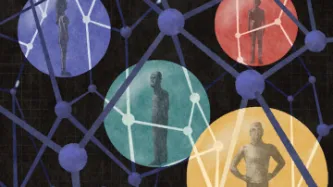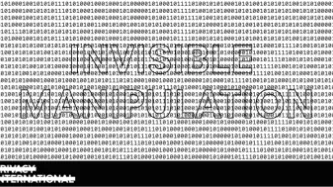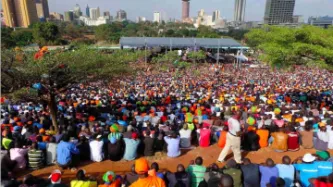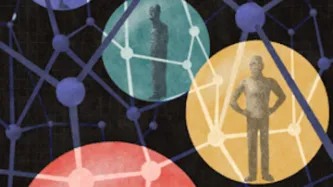Search
Content type: Examples
A former Facebook insider explains to Wired Magazine why it's almost certain that the Trump campaign's skill using the site's internal advertising infrastructure was more important in the 2016 US presidential election than Russia's troll farm was. The first was the ads auction; the second a little-known product called Custom Audience and its accompanying Lookalike Audiences. Like Google's equivalent, Facebook's auction has advertisers bid with an ad, an ideal user specification, and a bid for…
Content type: Examples
After investigation, the UK's privacy regulatory, the Information Commissioner's Office has found that two small sections of the written scripts used by Blue Telecoms, a marketing firm that made calls on behalf of the Conservative Party during the 2017 general election, crossed the line from legitimate market research to unlawful direct marketing. The ICO has issued a warning to the Conservative Party rather than launching a formal regulatory action because, it says, the overall campaign was…
Content type: Examples
Facebook and Twitter have advised Damian Collins, the chair of the UK Parliament's digital, culture, media, and sport committee, that the companies will hand over some information relating to the rearch of Russia-backed posts during the EU referendum. Facebook has already given the US Senate similar information about Russia-backed posts during the 2016 presidential election; this information showed that campaign ads and fake news generated by the Internet Research Agency troll factory in St…
Content type: Examples
Caucuses, which are used in some US states as a method of voting in presidential primaries, rely on voters indicating their support for a particulate candidate by travelling to the caucus location. In a 2016 Marketplace radio interview, Tom Phillips, the CEO of Dstillery, a big data intelligence company, said that his company had collected mobile device IDs at the location for each of the political party causes during the Iowa primaries. Dstillery paired caucus-goers with their online…
Content type: Examples
In what proved to be the first of several years of scandals over the use of personal data in illegal, anti-democratic campaigning, in 2015 the Guardian discovered that Ted Cruz's campaign for the US presidency paid at least $750,000 that year to use tens of millions of profiles of Facebook users gathered without their permission by Cambridge Analytica, owned by London-based Strategic Communications Laboratories. Financially supported by leading Republican donor Robert Mercer, CA amassed these…
Content type: Examples
By 2020, digital ad spending on political campaigns, which was about $22 million in 2008, is projected to reach $3.3 billion. Broadcast audiences in 2016 were about a quarter the size they were in the 1980s, and they are continuing to shrink, while half of US broadcast radio stations are expected to be gone in the next decade. Going with it is the national coherence that came with mass audiences. In 2009, the company Audience partners began deploying voter targeting technology that allowed…
Content type: Examples
In March 2016, a hacker group identifying itself as Anonymous Philippines defaced the website of the Philippine Commission on the Elections (Comelec), leaving a message that accused Comelec of not doing enough to secure the voting machines due to be used in the general election the following month. That same day, LulzSec Piliphinas, a different but related hacker group, posted online a link to a 338GB database it claimed was the entire electoral register of 54.36 million Filipinos. Trend Micro…
Content type: Examples
In 2016, supporters of Ted Cruz and Rand Paul for president were surprised to begin getting emails from the Trump campaign soon after their candidates dropped out of the race for the Republican nomination. In an investigation, CNNMoney found that nearly every failed 2016 presidential candidate sold, rented, or loaned their supporters' email addresses to other candidates, marketers, charities, and private companies. From analysing thousands of emails and Federal Election Commission records,…
Content type: Long Read
In December 2017, Privacy International published an investigation into the use of data and microtargeting during the 2017 Kenyan elections. Cambridge Analytica was one of the companies that featured as part of our investigation.
Due to the recent reporting on Cambridge Analytica and Facebook, we have seen renewed interest in this issue and our investigation. Recently in March of 2018, Channel 4 News featured a report on micro targeting during the 2017 Kenyan Presidential Elections, and the…
Content type: Long Read
The ongoing Facebook and Cambridge Analytica scandal is a wake-up call for UK policy-makers who too often encourage and promote digital industries over the protection people’s personal data. The scandal has shown that the public is concerned by companies’ exploitation of their data. The current lack of transparency into how companies are using people’s data is unacceptable and needs to be addressed.
Reform should not be limited to the behaviour of individual companies. Consumers are confronted…
Content type: News & Analysis
Estos últimos días hemos conocido los detalles de cómo Cambridge Analytica fue capaz de acumular información sobre votantes, a través de una aplicación que recogió datos de más de 50 millones usuarios de Facebook, incluyendo 30 millones de perfiles sicográficos.
Esta es otra historia más de cómo se explotan datos para obtener ventajas políticas. Acá estamos frente a tres historias diferentes:
· Por una parte, partidos políticos y gobiernos continúan intentando acceder a toda la información…
Content type: Long Read
Over the past few days we've all learned details about how Cambridge Analytica was able to amass data on voters through the use of an app that would gather data on approximately 50 million Facebook users, including 30 million psychographic profiles.
This is three stories in one.
Yes, this is another story of data that has been exploited for political advantage, again. Political parties and governments continue to want access to social media intelligence and continue to develop profiles…
Content type: Long Read
The era where we were in control of the data on our own computers has been replaced with devices containing sensors we cannot control, storing data we cannot access, in operating systems we cannot monitor, in environments where our rights are rendered meaningless. Soon the default will shift from us interacting directly with our devices to interacting with devices we have no control over and no knowledge that we are generating data. Below we outline 10 ways in which this exploitation and…
Content type: News & Analysis
This post was written by PI Policy Officer Lucy Purdon.
In 1956, US Presidential hopeful Adlai Stevenson remarked that the hardest part of any political campaign is how to win without proving you are unworthy of winning. Political campaigning has always been a messy affair and now the online space is where elections are truly won and lost. Highly targeted campaign messages and adverts flood online searches and social media feeds. Click, share, repeat; this is what political engagement looks…
Content type: Long Read
The battle for Kenyan voters’ allegiance in the 2017 Presidential election was fought on social media and the blogosphere. Paid advertisements for two mysterious, anonymous sites in particular started to dominate Google searches for dozens of election-related terms in the months leading up to the vote. All linked back to either “The Real Raila”, a virulent attack campaign against presidential hopeful Raila Odinga, or Uhuru for Us, a site showcasing President Uhuru Kenyatta’s accomplishments. As…
Content type: Press release
A new investigation published today by Privacy International reveals the role of an American data-based digital advertising company in the highly divisive online re-election campaign of Kenyan president Uhuru Kenyatta.
In the run-up to Kenya's presidential election in August 2017, paid advertisements for two mysterious sites dominated Google searches for election-related terms and flooded Kenyans' social media feeds. All linked back to either 'The Real Raila', a virulent attack campaign…
Content type: News & Analysis
30 May 2017
These days it seems that no election can go by without fears of foul play, whether it is the hacking of a candidate or party’s e-mail or the spread of fake news and other misinformation to support or discredit a particular party or politician.
Often the finger is pointed at shady individuals or rogue governments , and invariably the accusations are met with flat denial. But the accusations have attracted significant attention from governments and companies alike, with reactions…
Content type: Case Study
Political campaigns around the world have turned into sophisticated data operations. In the US, Evangelical Christians candidates reach out to unregistered Christians and use a scoring system to predict how seriously millions these of voters take their faith. As early as 2008, the Obama campaign conducted a data operation which assigned every voter in the US a pair of scores that predicted how likely they would cast a ballot, and whether or not they supported him. The campaign was so confident…
Content type: News & Analysis
Image source: AFP
Earlier this month, the Kenyan daily The Star reported that UK-based data analytics firm Cambridge Analytica had been quietly contracted by President Uhuru Kenyatta’s party in a bid to win himself a second term in office. State House officials were quick to deny the claims, while the company itself issued no comment.
Cambridge Analytica has exploded onto the scene following revelations that its psychometric profiling techniques were used and reportedly played a role in…
Content type: Advocacy
Earlier this month, it was reported that UK-based data analytics firm Cambridge Analytica had been quietly contracted by President Uhuru Kenyatta’s party in a bid to win a second term in office. Privacy International has written to Cambridge Analytica to learn more about how the company assessed the risk of its work in Kenya and how it will ensure that Kenyans’ personal data will be protected.
Content type: Long Read
Disclaimer: This piece was written in April 2017. Since publishing, further information has come out about Cambridge Analytica and the company's involvement in elections.
Recently, the data mining firm Cambridge Analytica has been the centre of tons of debate around the use of profiling and micro-targeting in political elections. We’ve written this analysis to explain what it all means, and the consequences of becoming predictable to companies and political campaigns.
What does…
Content type: News & Analysis
The National Privacy Commission has had to firefight a huge leak of voter data in Philippines just one month before the elections
Raymund Liboro, the Philippines’ National Privacy Commissioner, has had a tough few weeks. Barely has his office even existed -- he was appointed in March -- than it is having to firefight what is being reported as the country’s most massive data breach to date. On 27 March, a hacker broke in to the national Commission on Elections (Comelec)’s…
Content type: News & Analysis
If you were to buy ‘Anna Karenina’ online, you would be told that people who bought Tolstoy’s classic also bought Dostoevsky’s ‘Crime and Punishment’. But if you've just read an 848 page epic Russian novel, do you really want your follow up to be a 1,008 page epic Russian novel? Maybe you want to read something very different next, maybe some contemporary American short stories, such as ’No one belongs here more than you’ by Miranda July? But you know, I don't think the…
Content type: News & Analysis
In the coming year, the elections to be held in Nigeria, Indonesia, Turkey, Ethiopia, Mexico, and Tunisia will be closely watched. Not only will the international community be monitoring the elections, but domestic governments could be monitoring their own citizens at the ballot box.
When courageous citizens brave uncertain political and societal contexts to exercise one of their fundamental human rights - the right to vote - they will rely on another fundamental human right - privacy. Privacy…























